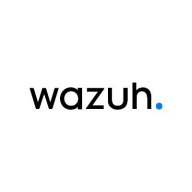

Anomali and Wazuh are competitors in the cybersecurity market, focusing on threat detection and management. Anomali has the upper hand with its advanced threat intelligence capabilities, while Wazuh excels in its comprehensive open-source solutions and cost-effectiveness.
Features: Anomali features advanced threat data aggregation and analysis, offering extensive threat intelligence feeds and strategic threat visibility. Wazuh is recognized for its robust SIEM capabilities, host monitoring, and comprehensive log data analysis.
Room for Improvement: Anomali could enhance its open-source integration capabilities and expand its community-driven support. Wazuh may improve its professional support options, streamline deployment processes, and enhance its threat intelligence offerings.
Ease of Deployment and Customer Service: Anomali provides a cloud-based deployment model with smooth integration and responsive professional support. Wazuh offers flexible on-premise or cloud deployment but relies more on community-driven assistance, which may not be as extensive as Anomali's professional support.
Pricing and ROI: Anomali involves a higher initial setup cost due to its premium threat intelligence services but offers a high ROI with effective threat identification. Wazuh offers excellent cost savings with strong basic functionalities, providing substantial ROI for budget-conscious organizations.
| Product | Market Share (%) |
|---|---|
| Wazuh | 10.2% |
| Anomali | 0.5% |
| Other | 89.3% |

| Company Size | Count |
|---|---|
| Small Business | 26 |
| Midsize Enterprise | 15 |
| Large Enterprise | 8 |
Anomali delivers advanced threat intelligence solutions designed to enhance security operations by providing comprehensive visibility into threats and enabling real-time threat detection and management.
Anomali stands out in threat intelligence, offering an innovative platform that integrates data to identify and analyze threats effectively. It enables teams to streamline threat detection processes and respond to incidents with increased agility. With a focus on accuracy and efficiency, Anomali supports cybersecurity professionals in making informed decisions to safeguard their networks consistently.
What are Anomali's core features?In industries like finance and healthcare, Anomali is implemented to address specific challenges like compliance and data protection. By using this platform, organizations gain the ability to adapt to evolving threats, ensuring robust and adaptable security postures tailored to industry demands.
Wazuh offers comprehensive security features like MITRE ATT&CK correlation, log monitoring, and cloud-native infrastructure. It ensures compliance and provides intrusion detection with high scalability and open-source flexibility, ideal for businesses seeking robust SIEM capabilities.
Wazuh stands out in security information and event management by providing efficient log aggregation, vulnerability scanning, and event correlation against MITRE ATT&CK. Its capability to integrate seamlessly with environments, manage compliance, and monitor files makes it suitable for cloud-native infrastructures and financial sectors. Despite its technical support needing enhancement and opportunities for improving AI integration and threat intelligence, its open-source nature and cost-effectiveness make it appealing. Users can leverage custom dashboards powered by Elasticsearch for precise data analysis, even though there is a desire for a more user-friendly interface and better enterprise solution integration. Deployment may be complex, but its features contribute significantly to fortified security postures.
What are the essential features of Wazuh?Industries like finance and cloud infrastructure heavily utilize Wazuh for its security strengths. By monitoring endpoints and ensuring compliance with frameworks, companies can improve security posture and swiftly detect anomalies. The platform's focus on event correlation and alerts for security incidents is particularly beneficial.
We monitor all Security Information and Event Management (SIEM) reviews to prevent fraudulent reviews and keep review quality high. We do not post reviews by company employees or direct competitors. We validate each review for authenticity via cross-reference with LinkedIn, and personal follow-up with the reviewer when necessary.